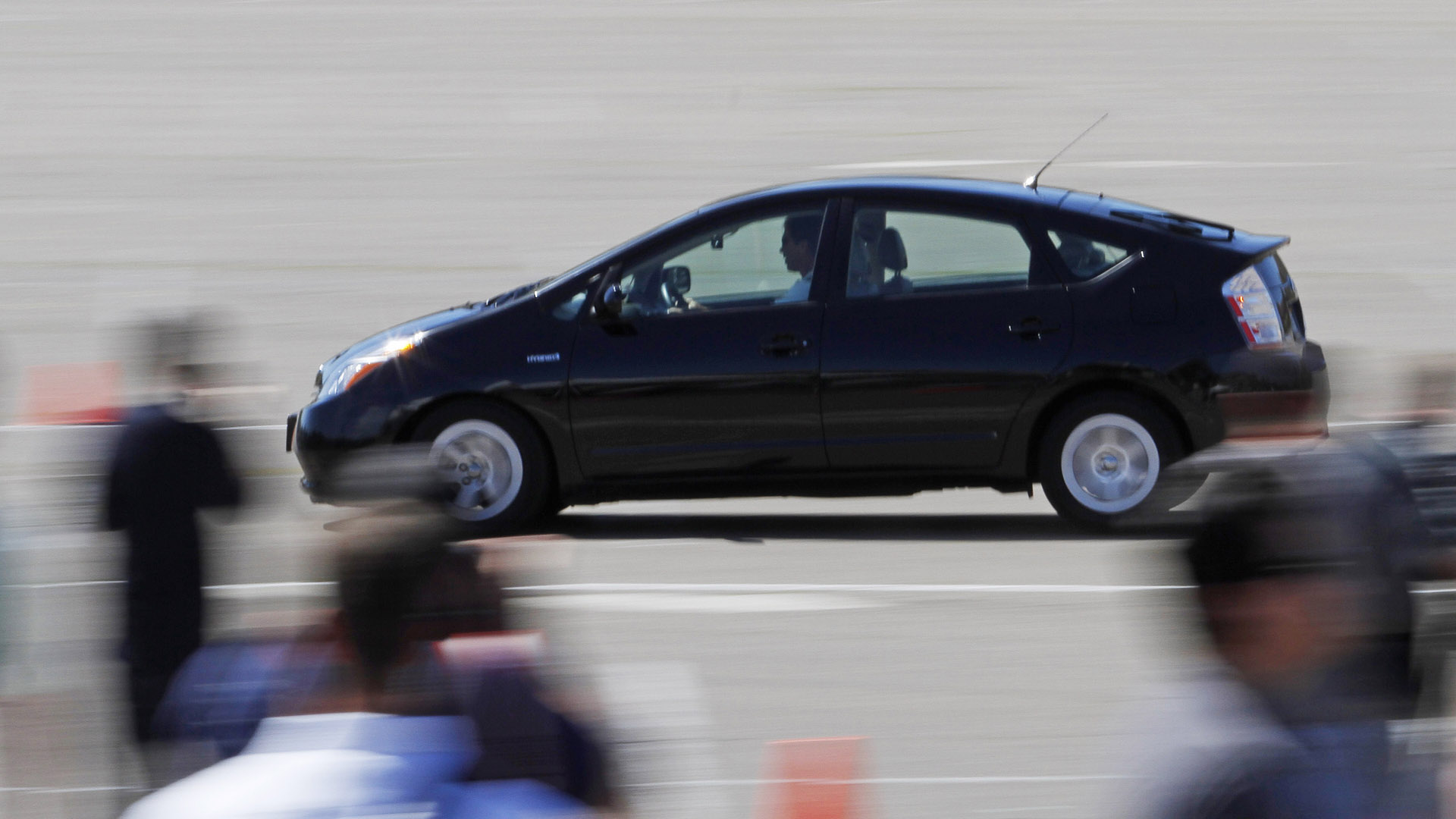

How to safely operate a car’s pedals isn’t a complicated matter, but let’s go over it one more time: push the one on the right to go and the one on the left to stop. Also, keep random junk or oversized floor mats away from the pedals at all times. Yes, we know that with age this can become a little harder, which is why Toyota is stepping in once again (following a huge lawsuit over unintended acceleration back in 2012) to keep your grandparents safe by upgrading its anti-pedal-confusion technology.
Toyota first made this tech available in 2012, when it launched Intelligent Clearance Sonar, which it began retroactively upgrading to Pedal Misapplication Acceleration Control System (PMACS) in 2018. Starting today, it will introduce its Acceleration Suppression System as part of PMACS II, which it hopes will stamp out crashes caused by pedal confusion for good.

Coming first to the Japan-market Prius and Prius PHV equipped with optional smart keys, the enhanced PMACS II uses the existing PMACS system’s sensors to detect obstacles, such as walls or even glass. Reportedly, this has already allowed the system to reduce pedal confusion crashes by 70 percent.
Imagine the following scenario: You’re approaching a storefront and are slowly creeping into your parking spot. All of a sudden, you mash the throttle instead of the brake. Oh no! In theory, sensors will already make the car aware of its surroundings at this point, and the recognition of either a wall or a large piece of glass (like a retail storefront) should activate the acceleration suppression system.
PMACS II now also functions while reversing, but will no longer step in with the vehicle’s turn signal on, while accelerating from a stop outside parking lots, or within two seconds of releasing the brakes.
PMACS II retrofits will start with the Prius and gradually extend to other models in Toyota’s lineup, and presumably make its way stateside in time, even if not in a Toyota. The company says it will share its findings and this tech with other automakers in the hope of saving as many drivers’ pride, pocketbooks, and when applicable, lives, as possible.
Got a tip? Send us a note: tips@thedrive.com